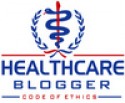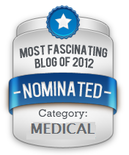Share your most inspiring way to live abundantly in 2010. You'll gain inspiration by viewing favorite ways shared by others! One lucky entrant will be selected to win a vacation package for two at the Gene Smart Living Abundantly Week at the luxury Scrub Island Resort. This amazing week, hosted by Dr. Ski Chilton, author of The Gene Smart Diet, will be held April 15 – 19, 2010. Visit http://scrubisland.com/bvispecial.
Everyone entered will receive their starter list of 2010 Ways to Live Abundantly free, just for sharing.
To enter, please click on the 2010 Ways to Live Abundantly text link located on the bottom of the following page: http://www.BACMedicalMarketing.com/Gene-Smart.html.
Prize Eligibility: This contest is open to all people at least 18 years of age who reside in the United States. To read the complete, official contest rules, please visit http://apps.facebook.com/contestshq/contests/15230/rules.
Contest Ends: February 06, 2010 @ 09:59 PM (PST).

 RSS Feed
RSS Feed































